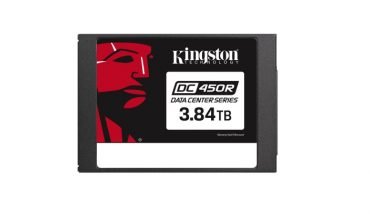Adrien Viaud, Senior Technology Manager at Kingston Technology Europe, speaks to Zarks Media about cloud data storage, data security, SSDs as a reliable storage solution, and the challenges that data center managers face.
Please give us a company overview. What has been your focus and strategy in a highly competitive market?
Kingston has grown to be the world’s largest independent manufacturer of memory products. With its global headquarters in Fountain Valley, California, Kingston employs more than 3,000 people worldwide. Regarded as one of the “Best Companies to Work for in America” by Fortune magazine, Kingston’s tenets of respect, loyalty, flexibility and integrity create an exemplary corporate culture. Kingston believes that investing in employees is essential and that each individual employee is a vital part of the company’s success. Kingston serves an international network of distributors, resellers, retailers and OEM customers on six continents. The company also provides contract manufacturing and supply chain management services for semiconductor manufacturers and system OEMs.
Security of data is a huge concern these days, especially with cloud gaining so much attention and traction. So, how secure is cloud data?
There is indeed a huge concern about data security these days. For instance, our DC SSDs incorporate end-to-end data path protection to help guarantee that all user data transferred into the SSD is protected against transient errors. They also feature on-board power-loss protection (PLP) via power capacitors and firmware. This ensures data-in-flight is written to the NAND Flash memory in the event of unexpected power loss. Additionally, PLP ensures that the drives’ mapping table (FTL) is updated prior to power being removed from the drive. These power loss safeguards reduce the chance of data loss and ensure that the drive will successfully re-initialize on the next power-up of the system. Data centers and hosters will also have redundancy systems in place to prevent any data losses and strong security to stop any hackers from accessing and stealing the data.
How does your company address data storage? What are some of your cutting-edge products and services?
Kingston has engineered the current DC SSD portfolio to meet the strict performance requirements of the largest datacenters and cloud providers in the world. We have seen an increase demand for DC NVMe SSDs, and we therefore will soon launch a U.2 NVMe SSD capacity up to 7.68TB which offers up to 6 times the performance of SATA based drives. We have been building SSD with an HDD interface for over 10 years to be able to support the billions of SATA based systems out there. However, it has its drawbacks and consequently performance limitations. There are a lot of HDD technology related commands that are being pushed through the SATA interface which are not relevant for an SSD and essentially, this creates a bottleneck. Therefore, the NVMe interface has been created. We get rid of the unnecessary commands, tweak the interface and we get a great performance boost. We also provide a service called “Ask An Expert” which gives the customer direct access to our engineers and experts. We look at the customer’s solution and their requirements and are then able to provide them a tailored configuration recommendation taking into consideration performance, capacity and power, but also staying within the allocated budget.
How much of awareness is there today, about secure data storage?
Today the level of awareness about secure data storage has increased and people are raising their concerns. Kingston strongly advices to make use of hardware encrypted products to ensure secured data storage.
How would you describe SSDs as a reliable storage solution? How secure are they?
SSD by design are reliable because they do not have any moving parts. Our enterprise / datacenter grade SSDs have gone through a thorough validation and testing process during which we set strict QoS requirements to ensure predictable random I/O performance as well as predictable low latencies over a wide range of read and write workloads. Our enterprise and DC customers have service level agreements (SLAs) in place and they have to deliver an optimum level of performance with their products and solutions. Kingston’s enterprise / datacenter grade SSDs are designed to deliver on these expectations.
With demand for new on-demand technology services and the cost of deploying and managing them continuing to skyrocket, how do you think data centers can stay relevant and up-to-date?
It is essential for data centers to understand new technologies and be familiar with them because it will allow them to be more efficient and productive with their hardware decisions. New technology plays also a key role in consolidation. You can replace “older” hardware with more efficient and more advanced technology which translates into more performance and power/space efficient solutions. Finding the right balance between new but pricier/ scarcer hardware and widely available, more cost-effective hardware is essential. Using SSD technology instead of HDD could reduce your power consumption, your rack space. A couple of SSDs can do the work of 10 or 20 HDDs, hence there is no need to have multiple RAID controllers.
What are some of the other challenges that data center managers face? How does Kingston go about addressing these challenges?
Data centers cannot afford any downtime and they therefore need to make sure the hardware in production is reliable and can withstand the incoming workload. With Kingston’s online service called “Ask An Expert”, customer’s current configurations and needs can get easily assessed and Kingston then proposes a tailored DRAM and SSD configurations to optimize performance, capacity, rack space and lower power consumption. We work closely with our DC customers to discuss technological and industry evolution. We give them access to early samples and work with them on POC.




